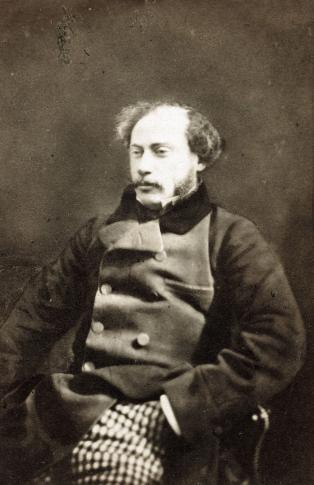Alexandre Dumas (1802–1870)

Dumas: “Order is the key to all problems.”
Alexandre Dumas, (1802 - 1870), one of the most prolific and most popular French authors of the 19th century. Without ever attaining indisputable literary merit, Dumas succeeded in gaining a great reputation first as a dramatist and then as a historical novelist, especially for such works as The Count of Monte Cristo and The Three Musketeers. His memoirs, which, with a mixture of candour, mendacity, and boastfulness, recount the events of his extraordinary life, also provide a unique insight into French literary life during the Romantic period. He was the father (père) of the dramatist and novelist Alexandre Dumas, called Dumas fils.
Dumas’s father, Thomas-Alexandre Davy de La Pailleterie—born out of wedlock to the marquis de La Pailleterie and Marie Cessette Dumas, a black slave of Santo Domingo—was a common soldier under the ancien régime who assumed the name Dumas in 1786. He later became a general in Napoleon’s army. The family fell on hard times, however, especially after General Dumas’s death in 1806, and the young Alexandre went to Paris to attempt to make a living as a lawyer. He managed to obtain a post in the household of the Duke d’Orléans, the future King Louis-Philippe, but tried his fortune in the theatre. He made contact with the actor François-Joseph Talma and with the young poets who were to lead the Romantic movement.
Dumas’s plays, when judged from a modern viewpoint, are crude, brash, and melodramatic, but they were received with rapture in the late 1820s and early 1830s. Henri III et sa cour (1829) portrayed the French Renaissance in garish colours; Napoléon Bonaparte (1831) played its part in making a legend of the recently dead emperor; and in Antony (1831) Dumas brought a contemporary drama of adultery and honour to the stage.
Though he continued to write plays, Dumas next turned his attention to the historical novel, often working with collaborators (especially Auguste Maquet). Considerations of probability or historical accuracy generally were ignored, and the psychology of the characters was rudimentary. Dumas’s main interest was the creation of an exciting story set against a colourful background of history, usually the 16th or 17th century.
The best known of his works are Les Trois Mousquetaires (published 1844, performed 1845; The Three Musketeers), a romance about four swashbuckling heroes in the age of Cardinal Richelieu; Vingt ans après (1845; “Twenty Years After”); Le Comte de Monte Cristo (1844–45; The Count of Monte Cristo); Dix ans plus tard ou le Vicomte de Bragelonne (1848–50; “Ten Years Later; or, The Vicomte de Bragelonne”); and La Tulipe noire (1850; “The Black Tulip”).
When success came, Dumas indulged his extravagant tastes and consequently was forced to write more and more rapidly in order to pay his creditors. He tried to make money by journalism and with travel books but with little success.
The unfinished manuscript of a long-lost novel, Le Chevalier de Sainte-Hermine (The Last Cavalier), was discovered in the Bibliothèque Nationale in Paris in the late 1980s and first published in 2005.
* * *
“Order is the key to all problems.”
“For all evils there are two remedies - time and silence.”
“All human wisdom is contained in these two words - Wait and Hope”
“Mastery of language affords one remarkable opportunities.”
“There is neither happiness nor misery in the world; there is only the comparison of one state with another, nothing more. He who has felt the deepest grief is best able to experience supreme happiness. We must have felt what it is to die, Morrel, that we may appreciate the enjoyments of life.
" Live, then, and be happy, beloved children of my heart, and never forget, that until the day God will deign to reveal the future to man, all human wisdom is contained in these two words, 'Wait and Hope.”
“All generalizations are dangerous, even this one.”
“Love is the most selfish of all the passions.”
“The merit of all things lies in their difficulty.”
“A weakened mind always sees everything through a black veil. The soul makes its own horizons; your soul is dark, which is why you see such a cloudy sky.”
“I came to Paris with four écus in my pocket, and I’d have fought with anybody who told me I was in no condition to buy the Louvre.”
“(...) the tree forsakes not the flower: the flower falls from the tree.”
“Death is the only serious preoccupation in life.”
“Business? It's quite simple. It's other people's money.”
“Great is the truth, fire can not burn, nor water can drown it!”
( Alexandre Dumas)




 del.icio.us
del.icio.us Digg
Digg

Post your comment